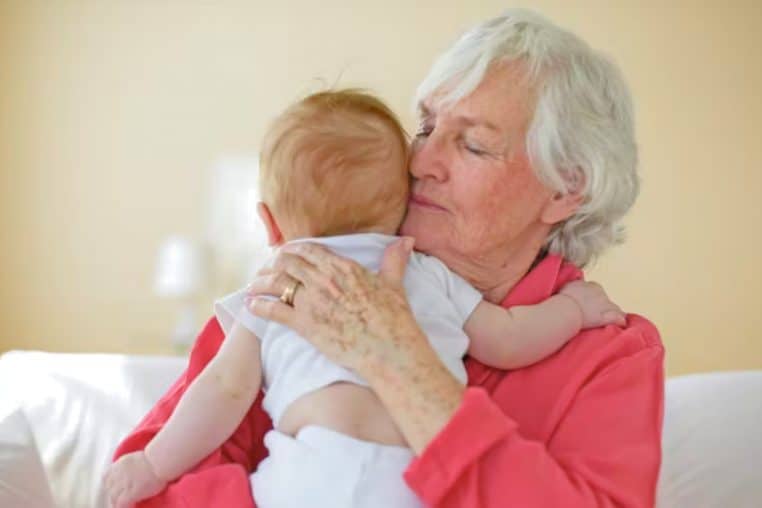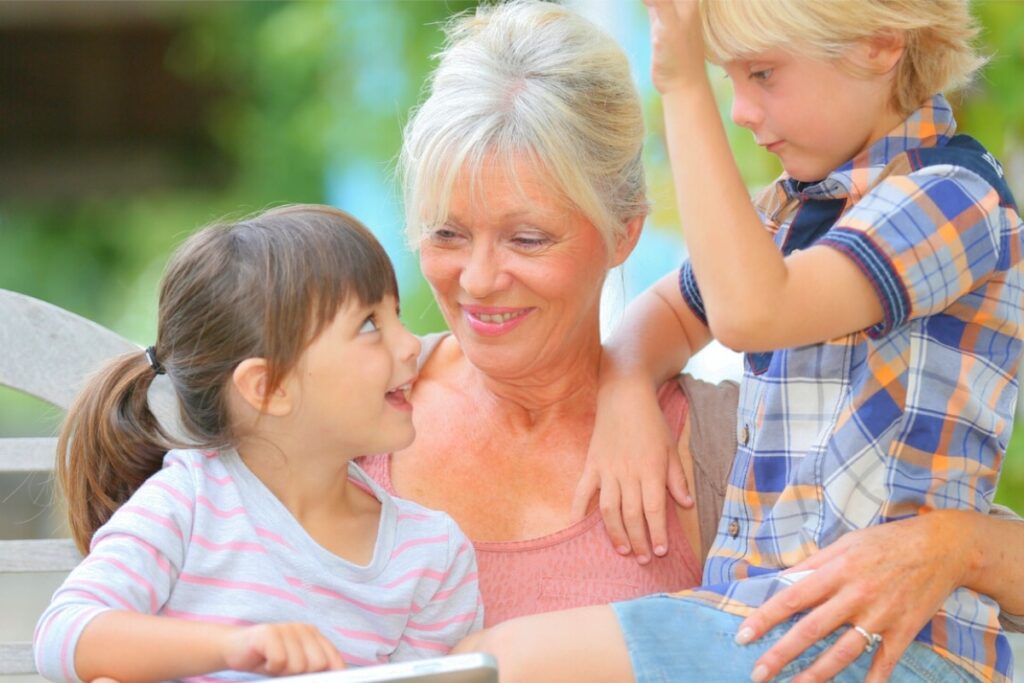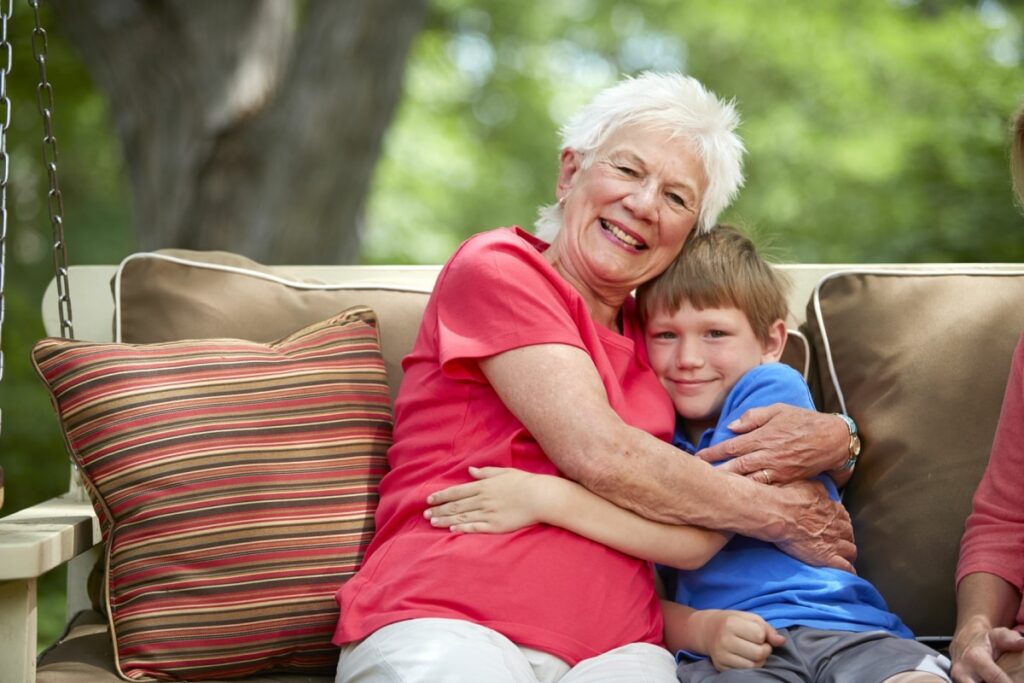While grandparents cherish their grandchildren, many feel overwhelmed by being called upon as mere caregivers during vacations. This situation negatively impacts their daily lives, mental health, and desire for freedom.

📊 The “Exploited Grandparent Syndrome”: An Increasingly Common Pressure
In 2023, a BBC survey revealed a concerning trend: more and more grandparents feel obliged to care for their grandchildren, especially during school holidays. The British media even referred to this as the “Exploited Grandparent Syndrome“, highlighting the moral and societal pressure many seniors are experiencing.
These grandparents want to enjoy their retirement, partake in leisure activities, travel, and relax. However, every school vacation, the same scenario unfolds: children arrive with their baggage and boundless energy. “What are we doing today, Grandma?” becomes a recurring phrase, transforming the home into a chaotic playground.
This pressure is heightened as many grandparents feel they must constantly “do favors”, often at the expense of their own well-being. Consequently, many end up feeling trapped in a role they haven’t truly chosen.


😕 A Real Fatigue That Can Be Overwhelming
While grandparents openly express joy in spending time with their grandchildren, they also acknowledge the fatigue it brings. According to the Seniors’ Observatory, 6 out of 10 grandparents feel exhausted after several days of caregiving, and 3 out of 10 indicate that it interferes with their personal lives.
“The house is a mess, they’ve made forts everywhere, cushions are on the floor…” shares one grandmother. Another adds: “If I tell them to read, they’d rather stay glued to their tablets, which disgusts me.” This contrast between the expectations of elders and the realities of the tech-savvy generation sometimes creates tense or even frustrating living situations.
In addition to physical exhaustion, there’s also a emotional fatigue, often more challenging to articulate. Some report feeling invisible or regarded as a default option, which can harm their self-esteem. Others point out the struggle of maintaining a balance between affection and authority, especially when the rules differ from those of the parents.


ℹ️ Organization: The Key to a More Comfortable Caregiving Experience
Benjamin Muller, a columnist for TF1, offers simple yet effective tips for reducing the mental load on grandparents. The secret? Organization and shared activities:
- Plan activities related to their own hobbies: cooking, gardening, DIY, etc.
- Don’t hesitate to invite cousins or friends so the children can entertain each other
- Permit moments of rest, or even a bit of TV, to recharge
Establishing a little routine from the start can also prevent conflicts. Setting schedules for meals, quiet times, and outings helps structure the days and provides a reassuring framework for everyone.
For teenagers, Benjamin even suggests being a caring confidant, as “they need someone to talk to, and love doing it with their grandparents.” This fosters connection without depleting physical energy. Some grandparents find it helpful to create a written schedule that children can consult each day to know what’s planned, thereby limiting incessant requests.


🔊 Knowing How to Say No… Without Guilt
The real key, however, lies in communication within the family. Many grandparents hesitate to set their boundaries for fear of causing tension or losing their bond with their grandchildren. Yet, it’s crucial to emphasize that grandparents don’t have the same energy, and they too deserve their own time, rest, and personal projects.
Expressing limits with tact, humor, and honesty before reaching exhaustion can prevent many misunderstandings. For instance, proposing a partial care arrangement, such as a half-day or alternating with other family members, can help alleviate the burden without rejecting it entirely.
On the other hand, parents must also learn not to view grandparents as an automatic “backup solution.” They need to recognize the generosity of this role and acknowledge the contributions of the older generation without taking them for granted. Genuine appreciation can significantly impact family dynamics.









